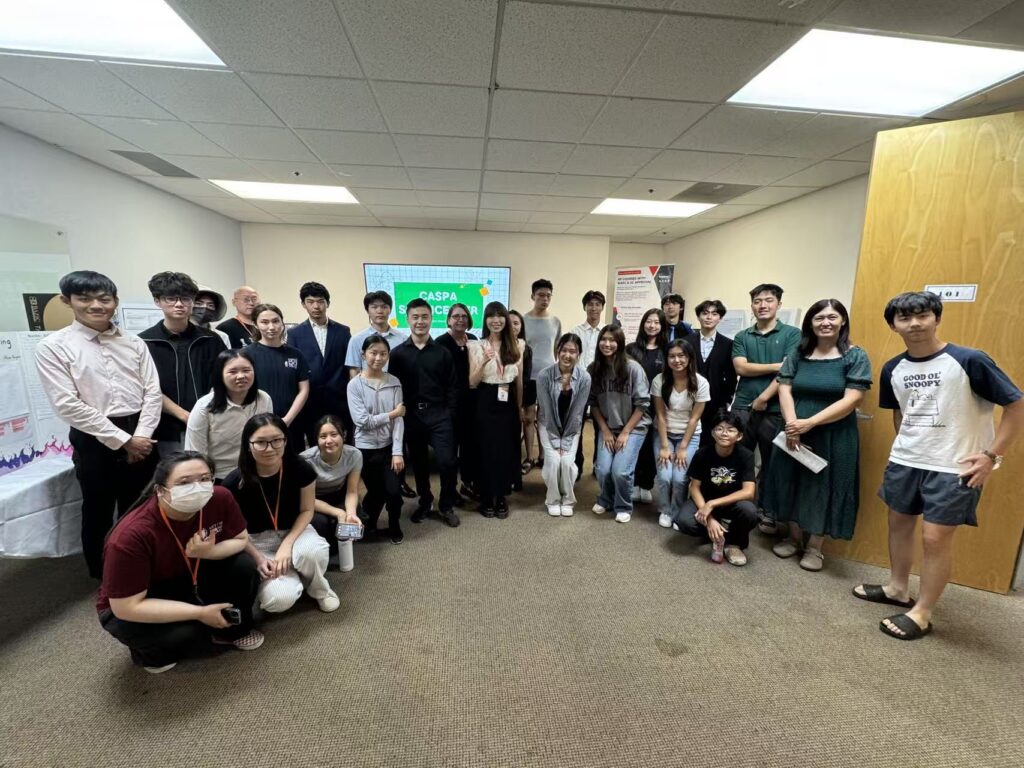Why Science Fair in High School Matters
Table of Contents
A Hidden Gem in College Prep
When preparing for U.S. college admissions, most parents and students focus on two major areas: academic competitions like AMC and long-term research internships in university labs. However, there’s a powerful third option that often gets overlooked—the Science Fair.
Science Fairs offer a perfect balance between academic rigor and creative expression. They provide a real-world platform for students to explore interests, conduct independent research, and showcase their thinking—all while building essential soft skills.
Science Fair vs. Competitions vs. Research
Competitions focus on scores and rankings. Research projects emphasize academic depth. But Science Fairs stand out as a bridge between the two. A well-prepared science fair project challenges students to:
Think critically and independently
Design and complete an experiment or investigation
Present findings clearly and persuasively
It’s the ideal platform for students who want to build both technical and communication skills—exactly what top universities value most.
Inside the 2025 CASPA Science Fair
On August 24, 2025, the CASPA Science Fair, co-hosted by CASPA and IvyMax, was held simultaneously at two locations: Cupertino (Northern California) and Arcadia (Southern California). Dozens of high school students presented their original science fair projects in front of judges, educators, and parents.
At both sites, students stood beside large project display boards, confidently explaining their research process and results. The atmosphere was vibrant, and the energy from the Q&A sessions was a clear sign of deep engagement and learning.

Student Growth Beyond the Project
The most valuable part of a Science Fair? Students are in charge—from concept to presentation.
Whether their topic was environmental science, AI, psychology, or biology, students were expected to:
Clearly explain their research question and motivation
Describe methodology and data collection
Analyze results and respond to live questions from experts
One student shared, “I never imagined I could explain my project to PhD-level judges and feel so confident doing it. But I did!”
This type of hands-on experience is a rare opportunity for students to feel ownership of their academic work and practice real-world problem-solving.
Soft Skills That Colleges Care About
Unlike traditional research that often happens behind closed doors, Science Fairs require students to speak publicly, defend their ideas, and think on their feet.
These experiences build:
Verbal communication
Logical thinking
Emotional confidence
Quick decision-making
All of these soft skills are not just helpful—they are essential. Top colleges often ask: can the student clearly explain their work and thinking? A science fair project answers that with a “yes.”
Why Science Fairs Boost College Applications
A strong Science Fair experience strengthens a student’s college application in many ways:
Shows initiative and curiosity
Demonstrates independent thinking
Adds authenticity to application essays and interviews
Can lead to deeper research or internship opportunities
Many IvyMax students have taken their science fair project one step further, evolving it into long-term research and even real-world internships. This journey—from Science Fair to advanced work—adds significant value to any college application.
How Parents Can Support the Science Fair Process
As a parent, your role is critical. You don’t need to be a scientist. You just need to guide your child with the right support:
Encourage them to pick a topic they truly care about
Help them stick to deadlines and stay motivated
Practice presentations at home—help with clarity and confidence
Ask critical questions to help them think deeper
Most importantly, show up for their event. Your presence builds their confidence more than you know.
Science Fair Is a Launchpad, Not Just a Showcase
or parents and students aiming high, a Science Fair is a golden opportunity. It develops curiosity, critical thinking, confidence, and communication—all key traits for college and beyond.
Don’t overlook the Science Fair. It’s not just a project—it’s preparation for the future.
FAQs
Q: What age is ideal for starting Science Fair projects?
A: High school (grades 9–11) is ideal, though students can begin as early as middle school.
Q: How long should a science fair project take?
A: Depending on complexity, 1–3 months of guided effort is typical.
Q: Do students need a mentor?
A: Not always, but having guidance from experienced educators or platforms like IvyMax helps improve quality and depth.
Q: Can a Science Fair project help with Ivy League applications?
A: Absolutely. It showcases independent research, presentation ability, and soft skills—all of which top schools look for.
By submitting this form, you are consenting to receive marketing emails from: IvyMax, 41111 Mission Blvd., Suite 200, Fremont, CA, 94539, https://ivymax.com/. You can revoke your consent to receive emails at any time by using the SafeUnsubscribe® link, found at the bottom of every email. Emails are serviced by Constant Contact
Interested in our program?
Complete the form below and we’ll quickly respond with detailed information, and answers to all your questions!

By submitting this form, you are consenting to receive marketing emails from: IvyMax, 41111 Mission Blvd., Suite 200, Fremont, CA, 94539, https://ivymax.com/. You can revoke your consent to receive emails at any time by using the SafeUnsubscribe® link, found at the bottom of every email. Emails are serviced by Constant Contact
Interested in our program?
Complete the form below and we’ll quickly respond with detailed information, and answers to all your questions!

